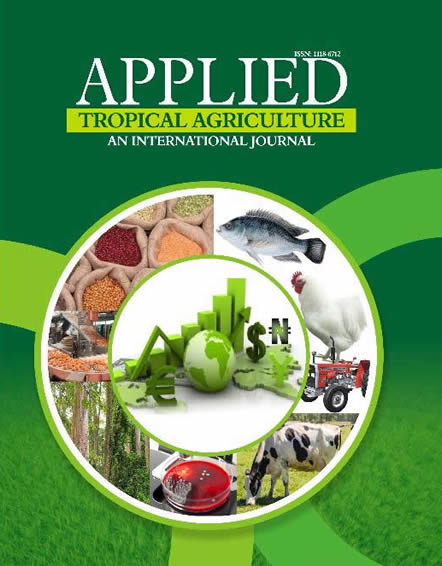This study was carried out to determine anti-endo parasitic effects of garlic (Allium sativum) in the diets of male (buck) and female (doe) weaner rabbits reared under deep litter system. Twenty-four cross bred weaner (8 weeks old) rabbits comprising twelve each of bucks and does were randomly allocated according to sex and feed supplement (conventional anticoccidia drug and garlic) in a 2x2 factorial arrangement. Data were collected on growth performance, faecal microbial population and carcass yield and analysed using ANOVA. Result showed that neither sex nor feed supplement had significant (P>0.05) effect on the growth performance of weaner rabbits. Coccidial load was progressively and completely eliminated in bucks and does from the baseline population of 1680epg and 600epg, respectively with rabbits fed diet supplemented with garlic. Also, does fed diet supplemented with commercial coccidiostat had complete coccidial load elimination from 5200epg at 8th week to the 16th week. Helminthic load (3800epg) recorded with bucks fed diet supplemented with garlic at the beginning of study were totally eliminated at the end of the study (56d). Helminthic load reduced from 6450epg at base line (0 week) to 950epg in the 4th week and was totally eliminated at 56d with bucks fed diet supplemented with the commercial coccidiostat. From the finding of this study, it could be concluded that sex, garlic or conventional anti-coccidiostat had no effect on growth performance and carcass yield of rabbits. However, garlic could be used as natural additive in rabbit production without adverse effects on growth and carcass yield where effective preventive measure for helminth and coccidiosis is paramount in deep litter housing type.
PAPER TITLE :ANTI-ENDO PARASITIC EFFECTS OF GARLIC (ALLIUM SATIVUM) AS SUPPLEMENT IN THE DIETS OF RABBITS REARED
APPLIED TROPICAL AGRICULTURE | VOLUME 21 NUMBER 2 2016
Paper Details
- Author(s) : Bello, K.O.1*; Akanji, A.O.2; Irekhore, O.T.3 and Lala, A.O.1
- Abstract:


